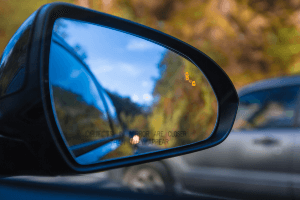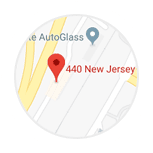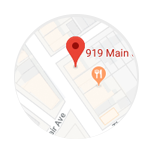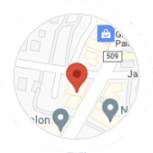Who May Be Liable for an Accident Due to a Blind Spot?
Posted on behalf of James Lynch on February 10, 2021 in Car Accident News. Updated on February 24, 2022
 Blind spot accidents happen frequently and may sometimes result in death or serious injuries. According to the National Highway Traffic Safety Administration, about 300 of the 800,000 blind spot accidents that occur every year end in a fatality.
Blind spot accidents happen frequently and may sometimes result in death or serious injuries. According to the National Highway Traffic Safety Administration, about 300 of the 800,000 blind spot accidents that occur every year end in a fatality.
That is why it is so important to always check your blind spots before changing lanes. You can also set up your sideview mirrors to give you a wider view of the area around the side of your vehicle. Defensive driving is also important, as you cannot trust other drivers to always be cautious when changing lanes.
If you or a loved one were injured in a blind spot accident, you should call a New Jersey car accident lawyer to learn about your legal options.
What Causes Blind Spot Accidents?
The vertical pillars that are connected to a vehicle’s windows create blind spots for drivers, and when a person fails to check that spot while merging, an accident may occur. Larger vehicles, like tractor-trailers, may have larger blind spots, making it more difficult to see vehicles in these areas.
Other reasons a blind spot accident may occur include a driver being too short to see over the steering wheel or to tall and to see through the windshield of a vehicle.
Blind spot accidents often involve sideswipes or rear-end collisions.
Factors That Help Determine Liability
Drivers have a responsibility to check their rear-view mirrors and turn their head when switching lanes to make sure there are no vehicles in their blind spot. If a driver attempts to switch lanes after taking care to check his or her blind spots, liability usually falls on the driver who merged into a blind spot.
When the driver switching lanes fails to check his or her blind spots and hits a vehicle that was already in the lane, liability would likely fall to that driver.
Evidence Used to Prove Liability
Proving that another driver was negligent is the goal of a car crash claim. Some of the evidence that may be used to prove a blind spot accident was caused by the negligence of another driver includes:
- Photos of the damage on the vehicle – The location of the damage may help your attorney determine the driver who was negligent.
- Video of the crash scene – Traffic light cameras, surveillance videos from nearby businesses or parking lots or even cellphone video from people who witnessed the collision could be used to help prove liability.
- Witness testimony – Anyone who witnessed the accident who is willing to provide a statement on record may help strengthen a claim.
- Police report – This is perhaps one of the most important pieces of evidence because a police report provides an objective third party statement on what happened and whether any citations were issued.
- Expert testimony – When it is difficult to assign liability due to a blind spot accident, someone like a car accident reconstruction expert may be brought in.
Avoiding Blind Spot Accidents
As technology advances, automakers have added more safety features to vehicles like rear-view and side cameras to help with blind spots. Newer cars may also have motion detectors. There are also gadgets you could add to older vehicles, such as blind-spot mirrors that are placed on side mirrors to help drivers when changing lanes.
Other methods that might help with avoiding blind spot accidents include:
- Looking over your shoulder when merging/changing lanes
- Slowing down
- Adjusting sideview mirrors
- Waiting until you have plenty of room to change lanes before doing so
- If it is not entirely safe to change lanes, wait to do so
Contact a Knowledgeable Attorney for Legal Assistance
Determining liability for blind spot accidents may be complicated, which is why insurance companies may try to deny or devalue your claim by placing at least some of the blame on you.
That is why you should hire an attorney who knows how to prove liability for an accident caused by a blind spot. This may help improve your chance of recovering the compensation you need for medical expenses, lost wages and other damages.
Our attorneys work on a contingency fee basis, which means you do not owe us anything unless we recover compensation on your behalf or while we work to build your case.
Call today to schedule a free consultation: (800) 518-0508







